The seminar presented by Joshua focused on the gender integration of mainland gay migrants in Hong Kong. it used a Bourdieusian framework to analyze their experiences in sexual fields here. Joshua discussed how migration, classes and their experiences before migration shape their integration strategy in local gay community. The research holds a significant opinion that integration doesn’t mean assimilation but can involve processes like re-signification (eg, build relationship through gym), de-signification (eg, lawyers weaken their gender lable by professional image) and the creation of alternative spaces that reflect migrants’ values (eg, build mainland immigrants’ social scene).
The research also discussed the neoliberal aspects of sexual citizenship, emphasizing the how commercialize, body culture and international identity shape social interactions within Hong Kong’s gay scene. For example, the migrants from mainland China are often marginalized by local gay men who prioritize specific physical and cultural trats such as muscularity, English skills and familiarity with global gay culture. These are barriers to social integration, raising questions about what it means to be accepted within a host society.
Through in-depth interviews and online recruitment, the study explored multiple roles of capital in the lives of migrants from mainland. It also reveals how hierarchical structures in Hong Kong’s sexual field limit their chances for meaningful relationships.
In conclusion, the talk emphasized that sexual integration is not a uniform process and that class and cultural differences significantly influence how gay migrants navigate their identities and social spaces in Hong Kong. It also inspires us to think further more about what power structure they are actually boycott when immigrants reject to integrate into a certain social structure.
Written by: LI, Xiaoyang
香港中文大學性別研究課程的Mphil學生Joshua介紹了他對從中國移居香港的在職和中產同性戀者的社會融合的初步研究。他的介紹主要通過文獻綜述、研究目的、理論框架、數據收集和研究發現展開。他探討了以地點為基礎的經驗和階級身份如何塑造從内地移居至香港的工薪階層至中產階層的男同性戀者的社群參與策略。Joshua 發現,許多移民抗拒採用新的性別身份,並一定程度脫離本地同性戀社區,寧願保持他們的文化習慣。他批判了經典的同化理論,認為融合是片段式的,並不總是完全的,挑戰了融合是完全社會同化的概念。他的研究探討移民,尤其是中國内地移民,在性和社會流動的背景下的關聯融合。它挑戰了異性戀中心的移民觀,強調移民的不同動機和經驗,包括那些因為生活方式的原因或為了逃避性壓迫環境而移民的人。他的研究聚焦於香港的同志移民,利用綫下采訪來了解他們的生平和移居經歷。通過分析采訪内容,他發現了外貌包裝、語言技巧和消費主義習慣在塑造移民經驗和機會方面的重要性。並討論探討在香港的中國内地同性戀移民所面對的挑戰,重點在於語言障礙、空間限制和階級流動性。部分移民使用英語冒充ABC,在說普通話時遭遇排斥,並因語言障礙而依賴短期交往。住房條件和空間資本影響了他們的社會互動,合租限制了他們的性機會。其融合的策略包括重新規劃性探索,專業發展優先與性別身份表達,以及獨闢蹊徑創造平行的社群空間,這突顯了階級、語言和性別在塑造移民經驗和策略方面的複雜相互作用。
Written by: LI Wenqi
移民者在融入東道國社會的過程中,往往會存在多樣化的障礙與角色性的重塑。林學長通過對於從大陸到香港移民男同性戀者的定性訪談,分析了他們身處於香港獨特的性景觀時,所受到的性領域的主要構成力量和重要資本的壓力,並就這些現實問題總結了三種策略性融合模式。
林學長發現,許多中國大陸的男同性戀移民者並不能適應香港的同性戀文化,他們在社會融合中存在著文化感知、階級身份等多維度的差異。首先通過兩組移民假設,林學長為我們介紹了過往諸多學者關於移民融合的實質與途徑的相關研究。其次,借鑒Bourdieusian的性融合理論框架視角,會議探討了“香港性領域的構成力量”和“性等級制度的產生管道”的研究問題。接著,學長概述了他通過線上線下數據採集,與16名工薪階層或中產階級來自中國大陸到香港的同性戀移民者對話,並將訪談發現分為香港性領域的構成力量,以及該領域的珍視資本。香港男同性戀文化更關注於經濟消費、國際化性行為、身體文化以及基於性別權力的政治身份,而大陸移民的男同性戀者往往會因為身材資本、語言文化界限和住房空間問題,難以融入其中。就此,移民者展開了三種類型的策略性融合模式——去意義化、重新意義化和替代性製造。例如他們會嘗試開放性關係、學習提升語言或是去深圳尋求歸屬感等。總而言之,多種互相關聯的資本形式為移民群體製造了等級障礙,而男同性戀移民者們正通過階級地位和性關係嘗試著策略性融合與塑造。
Written by: QIU Tianyue


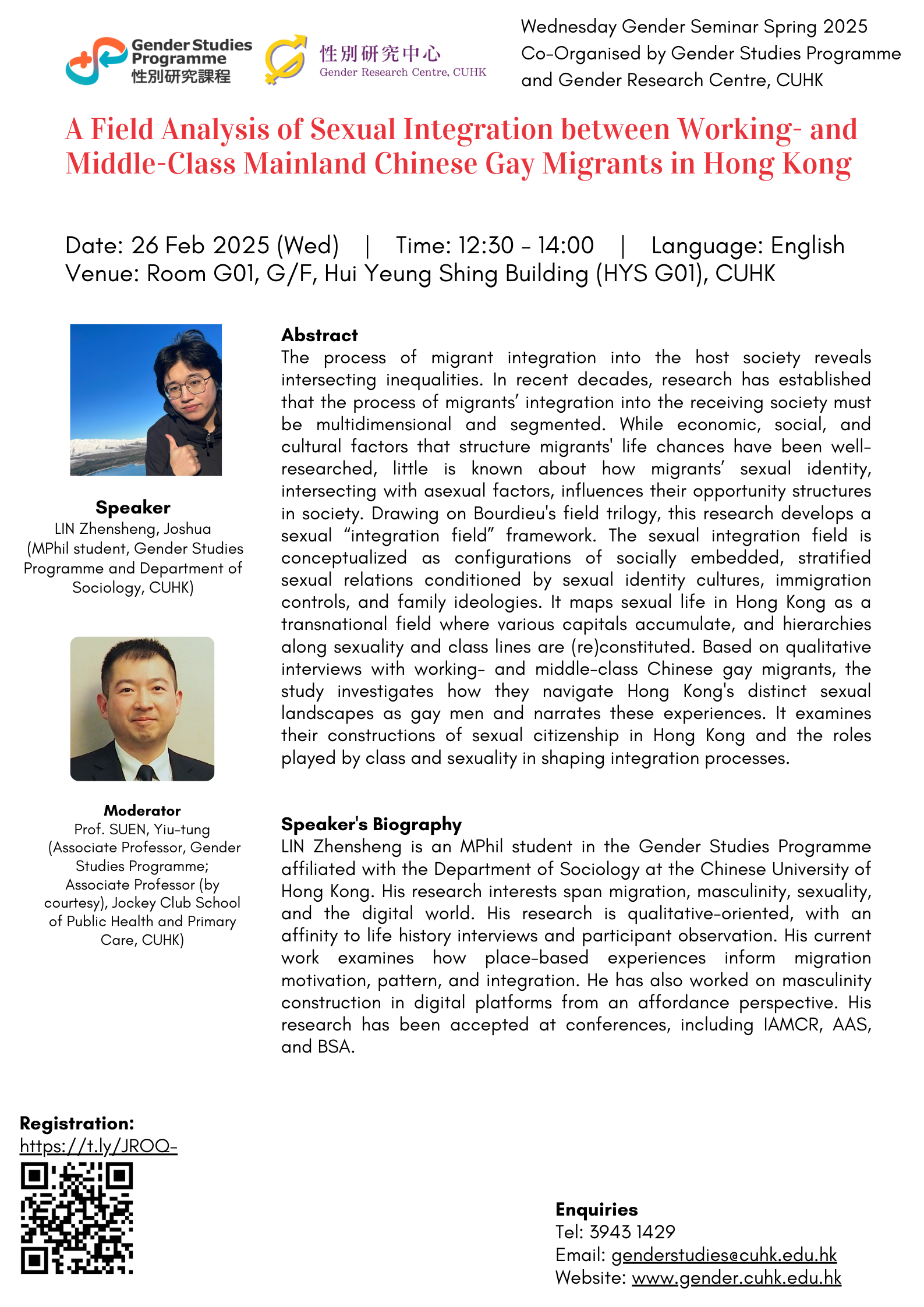
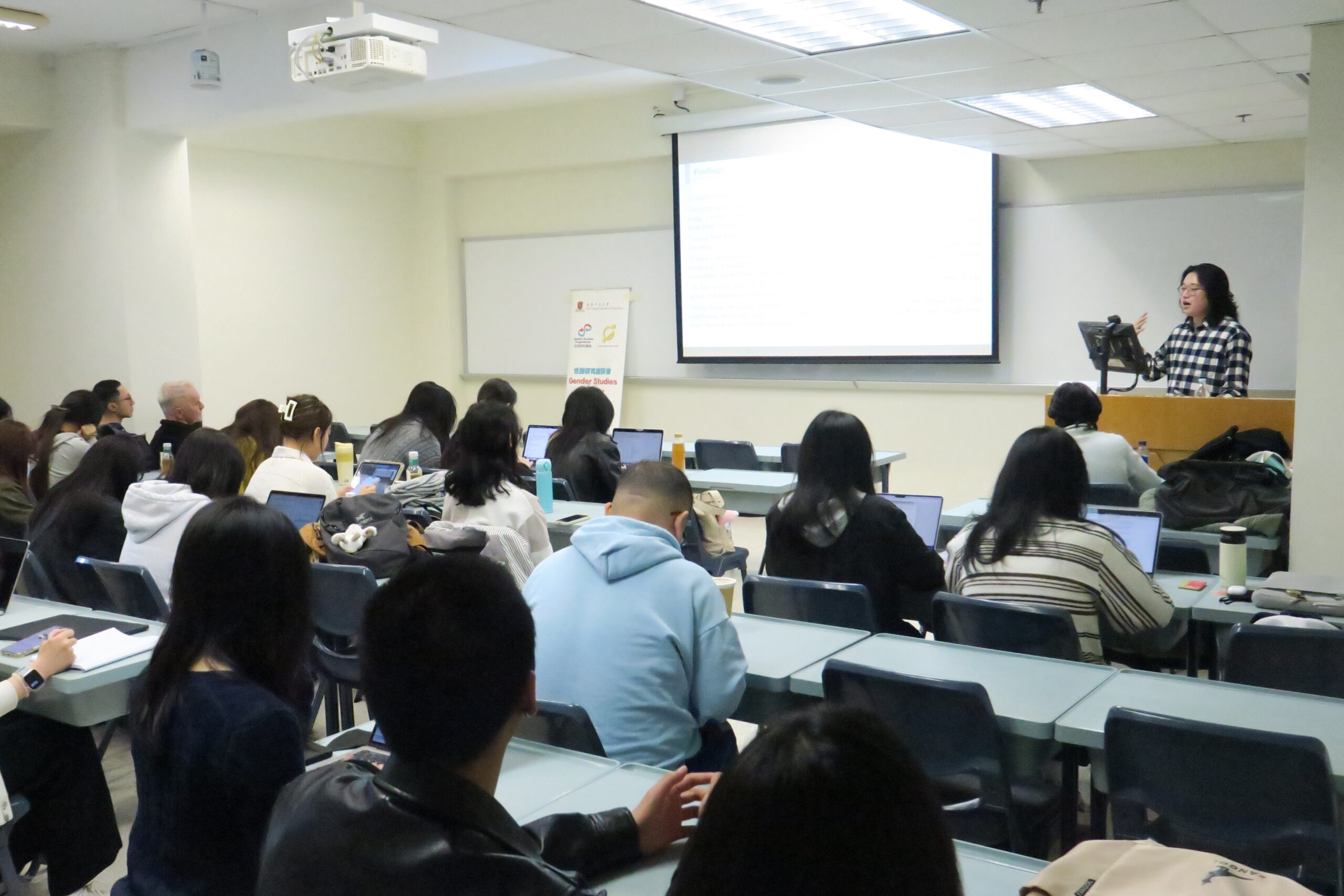
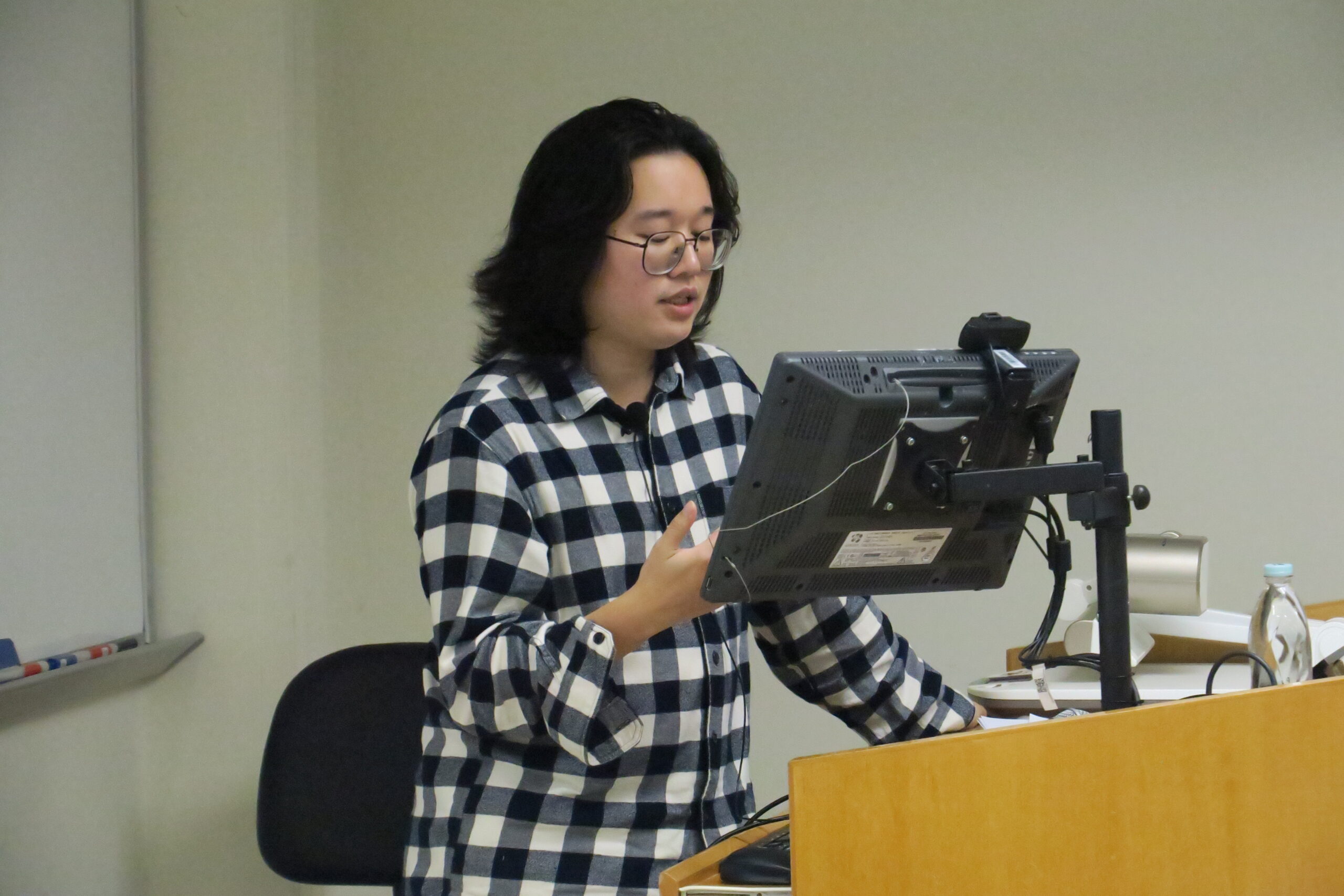
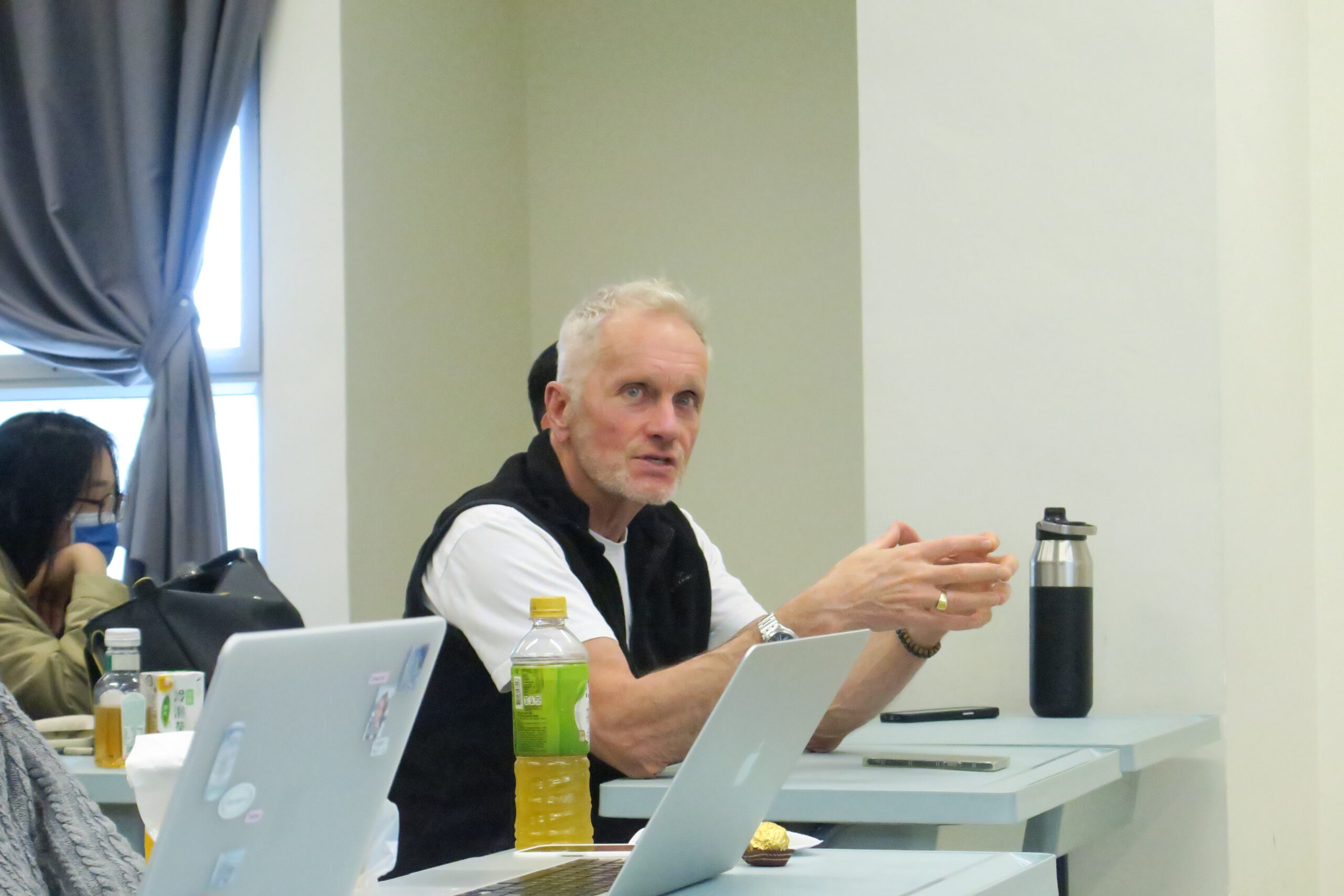

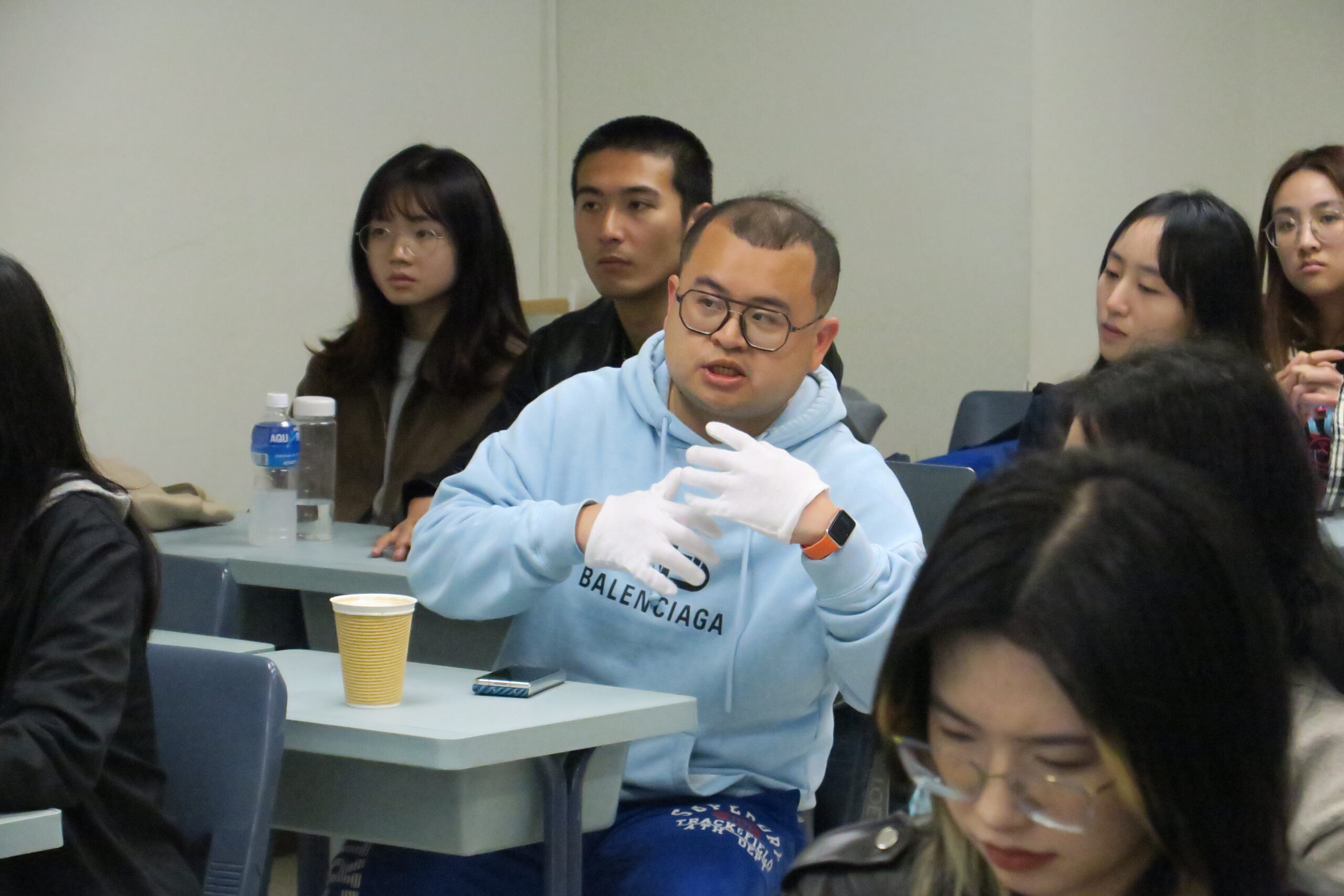
A
A
A
Contact Us